The iPhone 14 is coming in just a few days. We’ve been rounding up the latest rumors and expectations over the last year, and it’s almost time for an official announcement. The iPhone 14 lineup will include four models across two screen sizes, design changes, camera upgrades, and more. Here’s everything we know.
Given that the iPhone introduced in 2021 was indeed branded as the iPhone 13, we expect the 2022 iPhone to be the iPhone 14. Whether or not Apple ever returns to the “S” branding remains to be seen, but rumors indicate the 2022 iPhone will be a big enough upgrade to warrant a new number altogether.
We’re expecting the iPhone 14, iPhone 14 Pro, and iPhone 14 Pro Max to be three of the names. What’s unclear, however, is the name of Apple’s new 6.7-inch non-Pro iPhone. While this device has been commonly referred to as the “iPhone 14 Max,” more recent reporting suggests it could actually be called the iPhone 14 Plus
Apple marketing names stay under wraps until the last minute. This means we’ll have to wait until the event itself to learn more about what this year’s release will be officially called.
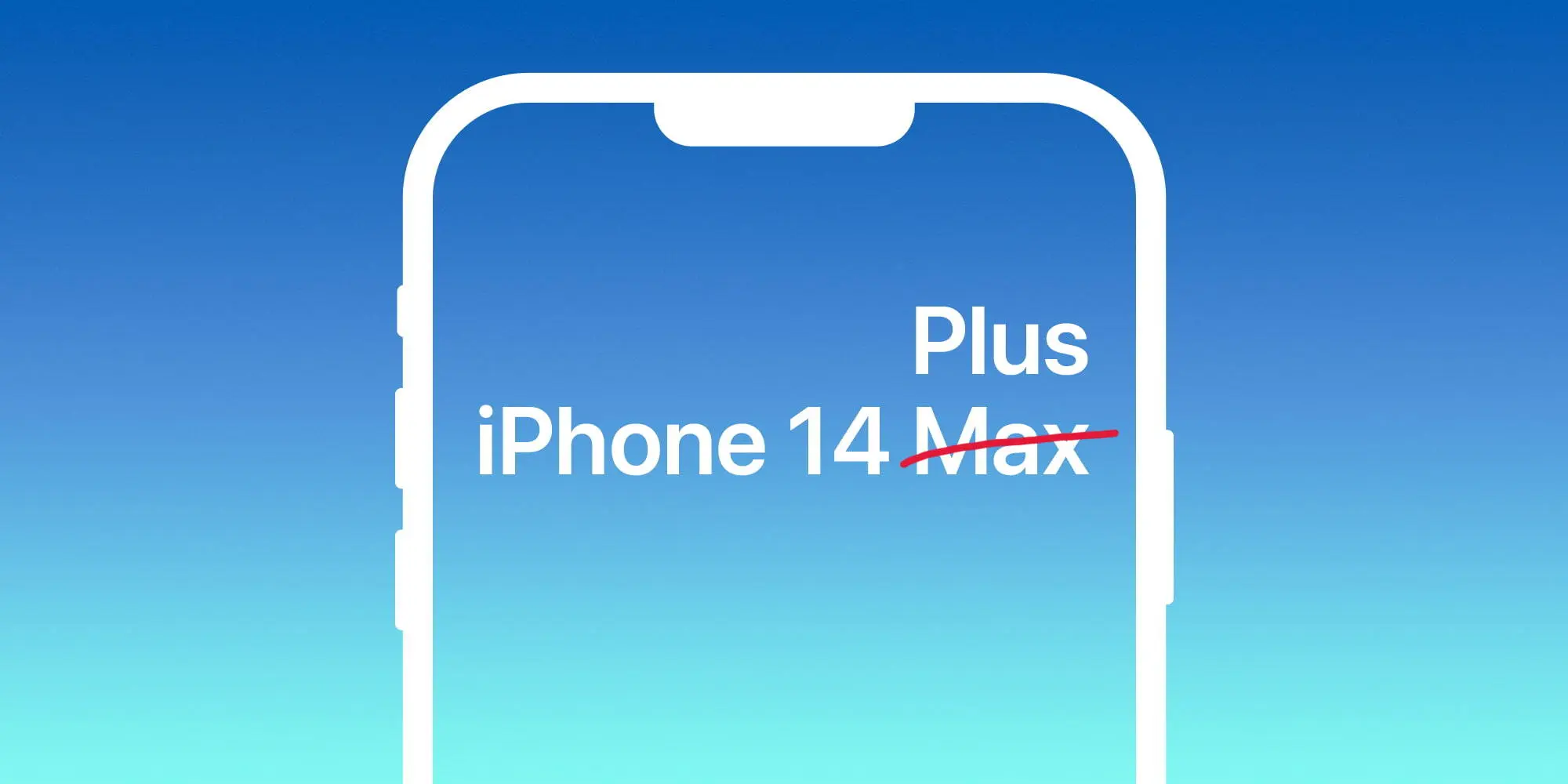
The biggest change that we currently expect with the 2022 iPhone is the removal of the notch cutout. The notch design was first introduced with the iPhone X, and it has stayed the same since then. The notch is where Apple houses its sensors for things like Face ID.
Reliable Apple analyst Ming-Chi Kuo reports that Apple will drop the notch in 2022, starting with the high-end iPhone 14 Pro. Instead of the notch, the iPhone 14 will use a new “pill hole” design. Rather than a simple hole-punch cutout used by many Android phones, Apple will use a combination of the hole punch cutout and a pill-shaped cutout.
This will allow Apple to squeeze the front-facing camera and Face ID hardware in, while also increasing the amount of available screen real estate. In March, 9to5Mac exclusively reported that the iPhone 14 Pro and iPhone 14 Pro Max will have slightly larger screens. This was also corroborated by analyst Ross Young.
Here’s the technology currently located in the iPhone’s notch:
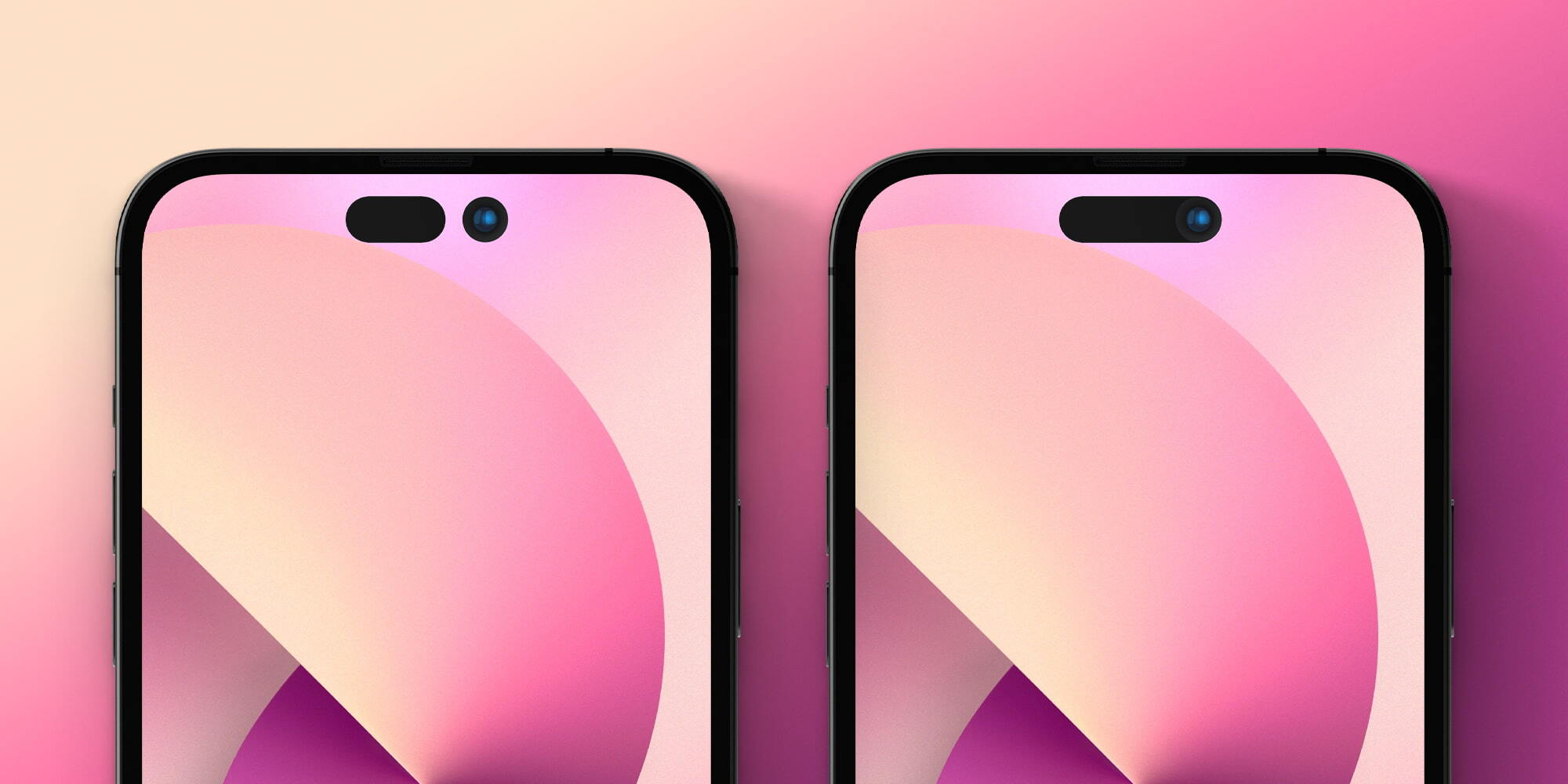
In a report, Young explained:
We now believe Apple will have a hole + pill design on the iPhone 14 Pro and Pro Max models. The smaller hole will not be invisible…The two hole concept will be unique to Apple, like the notch, not similar to all the pill models from Huawei.
The pill-hole design might not be as ambitious as some had hoped, but it’s the next step in the process of making the iPhone truly all-screen, without any cutouts at all.
But, Apple is also reportedly planning to use software trickery to bridge the gap between the two cutouts. This would put dead space between the two cutouts, creating the illusion that it’s actually longer pill-shaped cutout, rather than two separate ones.
In this space between to the two cutouts, sources tell 9to5Mac that Apple plans to put privacy indicators for the camera and microphone. This means you would see an orange dot in this space when an app is using your microphone and a green light when an app is using your device’s camera. Apple’s goal is to make the experience similar to the green indicator light that the Mac currently uses.
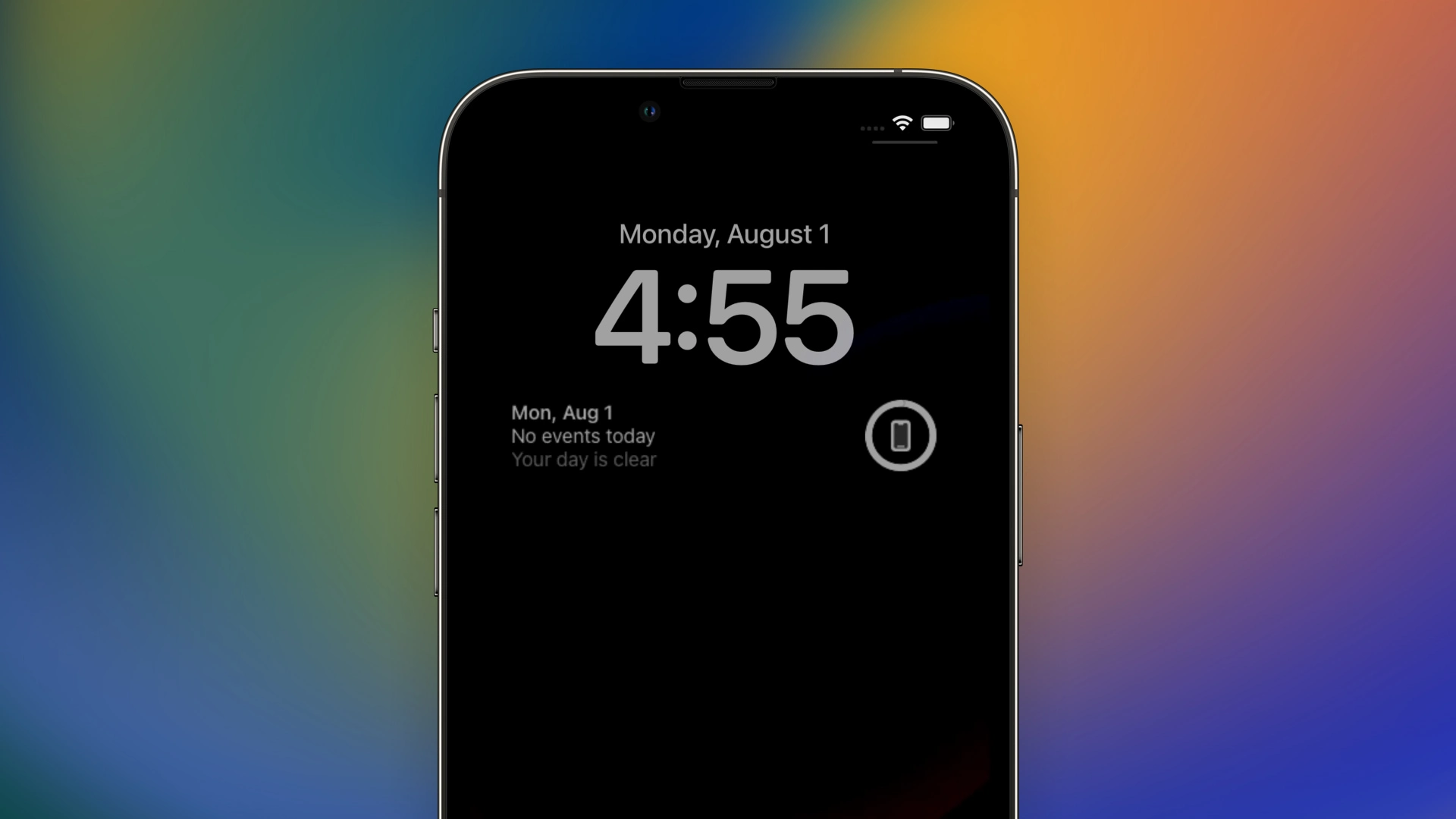
Speaking of the iPhone 14 Pro’s display technology, this will be the year that Apple finally adds always-on display support to the iPhone lineup. The company is reportedly planning to add always-on display support to the iPhone 14 Pro and iPhone 14 Pro Max. This would allow users to see glanceable information on their iPhone display, even when it’s powered off.
You may be wondering why the iPhone 13 Pro and iPhone 13 Pro Max can’t have this always-on display functionality. The key is that the iPhone 14 Pro models will have an updated ProMotion display technology that allows it to scale all the way down to a 1Hz refresh rate. The existing ProMotion displays used by Apple can scale down to a minimum of 10Hz.
The iPhone 14 Pro’s support for even lower refresh rates will help preserve battery life while simultaneously offering the always-on functionality. For context, the Apple Watch’s always-on display can scale to a 1Hz refresh rate as well.
There is a ton of evidence within iOS 16 to indicate that Apple is readying always-on display technology for the iPhone 14. 9to5Mac has found direct evidence of the feature in iOS 16, while Apple is also preparing its collection of default wallpapers to support the new technology.
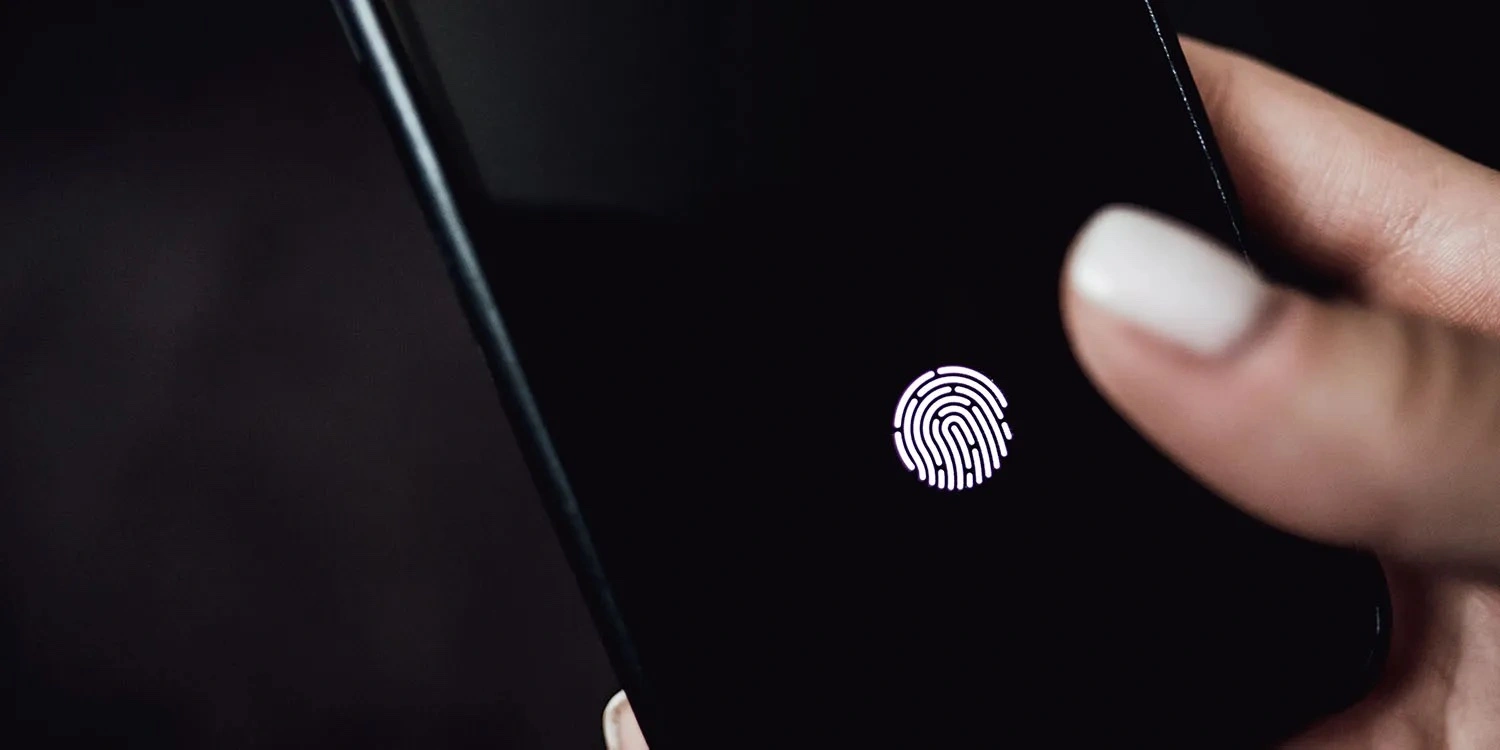
While early iPhone 14 rumors indicated that Apple would bring under-display Touch ID to the iPhone, this no longer appears to be the case. More recent reporting from Ming-Chi Kuo suggests that Apple has been forced to delay under-display Touch ID to 2023 instead.
According to Kuo, Apple has faced “lower than expected development progress” on its work to integrate Touch ID into the iPhone’s display. It’s also possible Apple will take a less ambitious approach and integrate Touch ID into the iPhone’s power button, similar to the iPad Air and iPad mini. But ultimately, Touch ID is not expected to be an iPhone 14 feature this year.
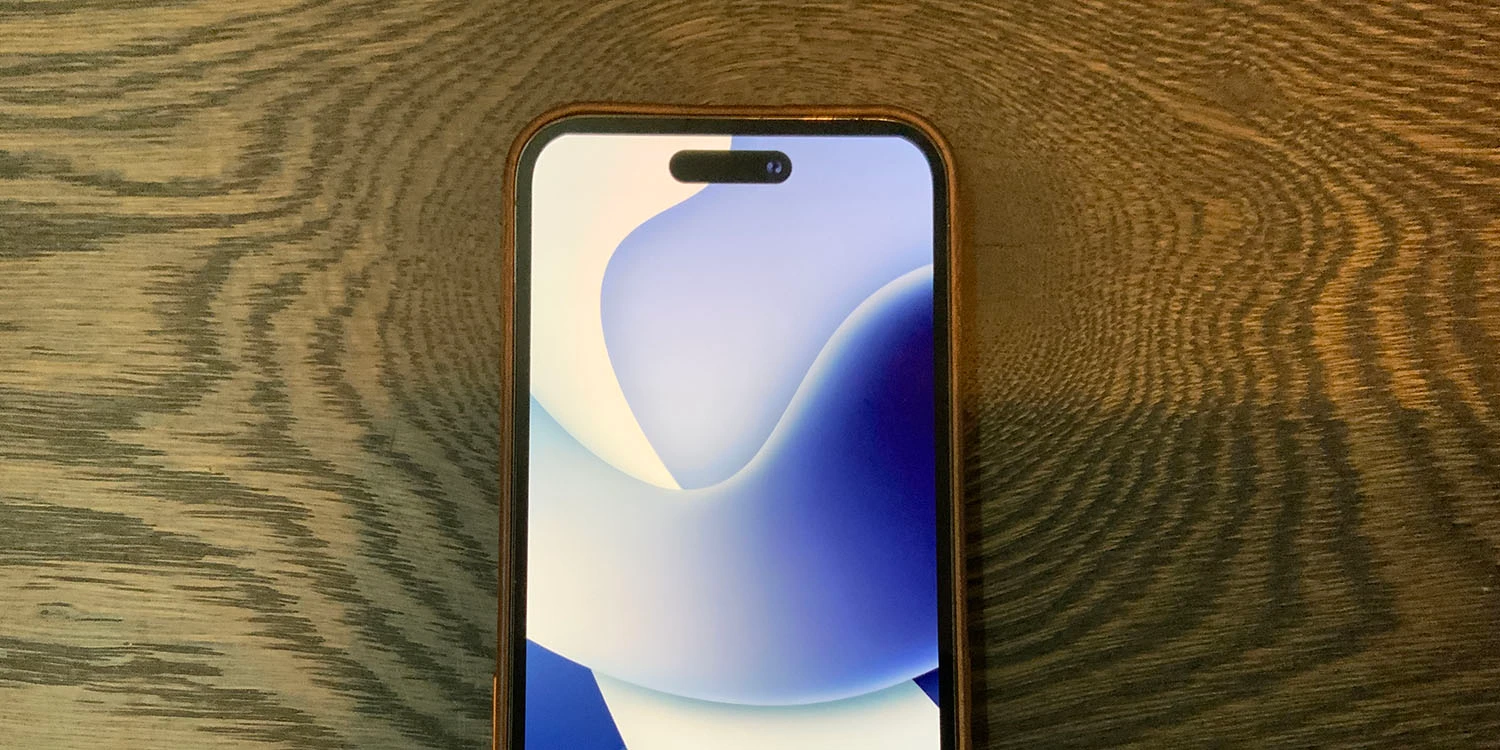
The iPhone 14 will include dramatic improvements to the front-facing camera, according to Kuo. The biggest change will be upgrades to the front-facing camera’s auto-focus features. This has been described as the front camera’s “biggest upgrade in years.” The addition of auto-focus support alone will significantly improve the camera’s performance.
Other upgrades include a six-part lens, versus the existing five-part lens. The iPhone 14’s front camera is also expected to have a larger f/1.9 aperture, which would let in more light. More details here are unclear, but the front-facing iPhone camera has a way to go to catch up to the rear camera.
In terms of the rear camera, Kuo says the iPhone 14 Pro and iPhone 14 Pro Max will be upgraded to 48-megapixels, an increase from the 12-megapixel sensor in iPhone 12.
Although the sensor is 48 megapixels, it is possible that output images from the iPhone will still be 12-megapixels in resolution. Similar to some Android phones, Apple could use a smart scaling algorithm that takes the raw 48-megapixel data and creates a 12-megapixel output image with more detail and less noise.
Kuo believes the video camera system will also be upgraded for the iPhone 14, supporting 8K recording for the first time.
.webp)
While early reports indicated that some models of the iPhone 14 will not feature a camera bump, this is no longer believed to be the case. In fact, the iPhone 14 Pro and iPhone 14 Pro Max are expected to have bigger camera bumps than their predecessors.
Kuo offered reasoning for this, saying that the wide camera upgrade is to blame:
The main reason for the larger and more prominent rear-camera bump of the 14 Pro/Pro Max is upgrading the wide camera to 48MP (vs. 13 Pro/Pro Max’s 12MP). The diagonal length of 48MP CIS will increase by 25-35%, and the height of 48MP’s 7P lens will increase by 5-10%.
For several years, reports have suggested that Apple could introduce a port-less iPhone. This iPhone would not feature a Lightning port, instead, it would be completely wireless. This was once rumored to come in 2021, but that did not happen.
The port-less iPhone is rumored to be something Apple is still testing, but it’s several years away at this point. In fact, Apple is expected to switch to USB-C in 2023. But the iPhone 14 coming this year will still use Lightning.
Apple is rumored to boost Lightning data transfer rates to USB 3.0 starting with the iPhone 14 Pro this fall, though. USB 2.0 supports transfer speeds of 480 Mbps, while USB 3.0 supports speeds of up to 5 Gbps. With 8K video recording on the way, faster data transfer speeds are a necessity.
While some rumors had anticipated that the iPhone 14 might use a new chip produced using 3-nanometer technology, that is no longer expected to be the case. Currently, Apple’s chip partner TSMC is expected to use an enhanced 5nm manufacturing process for the chip in the iPhone 14, likely referred to as the A16.
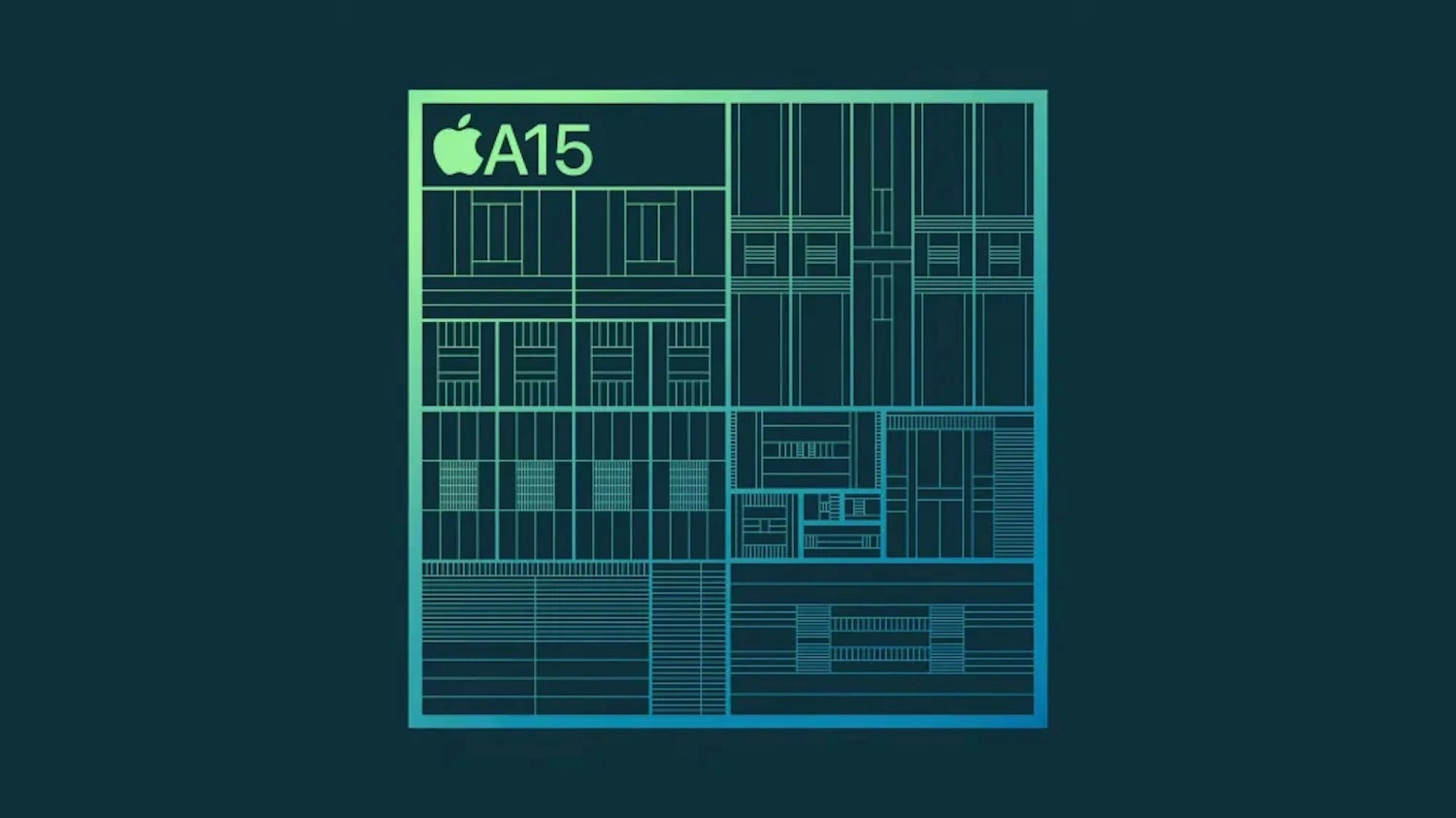
The iPhone 14 lineup is expected to herald a major change to differentiation strategy between the “Pro” models and the non-Pro models.
For the first time ever, Apple is expected to only upgrade the iPhone 14 Pro and iPhone 14 Pro Max to its newest processor. These two models are expected to be upgraded to the A16 chip, while the iPhone 14 and iPhone 14 Max will retain the same A15 chip inside the current iPhone 13 lineup.
The A16 chip inside the iPhone 14 Pro and iPhone 14 Pro Max will be manufactured with the same 5-nanometer process as the A15, which is also the same as the A14. This limits the year-over-year performance improvements, but it doesn’t mean we won’t see any improvements.
A recent supply chain report indicated that initial testing of the A16 chip inside the iPhone 14 Pro and iPhone 14 Pro Max indicated a performance boost of “just a few percent” compared to the A15 chip. Since then, however, Apple has reportedly worked to improve the thermal management of the A16 chip to further increase performance. This ultimately means the actual real-world change could be more notable for the A16 than initially expected.
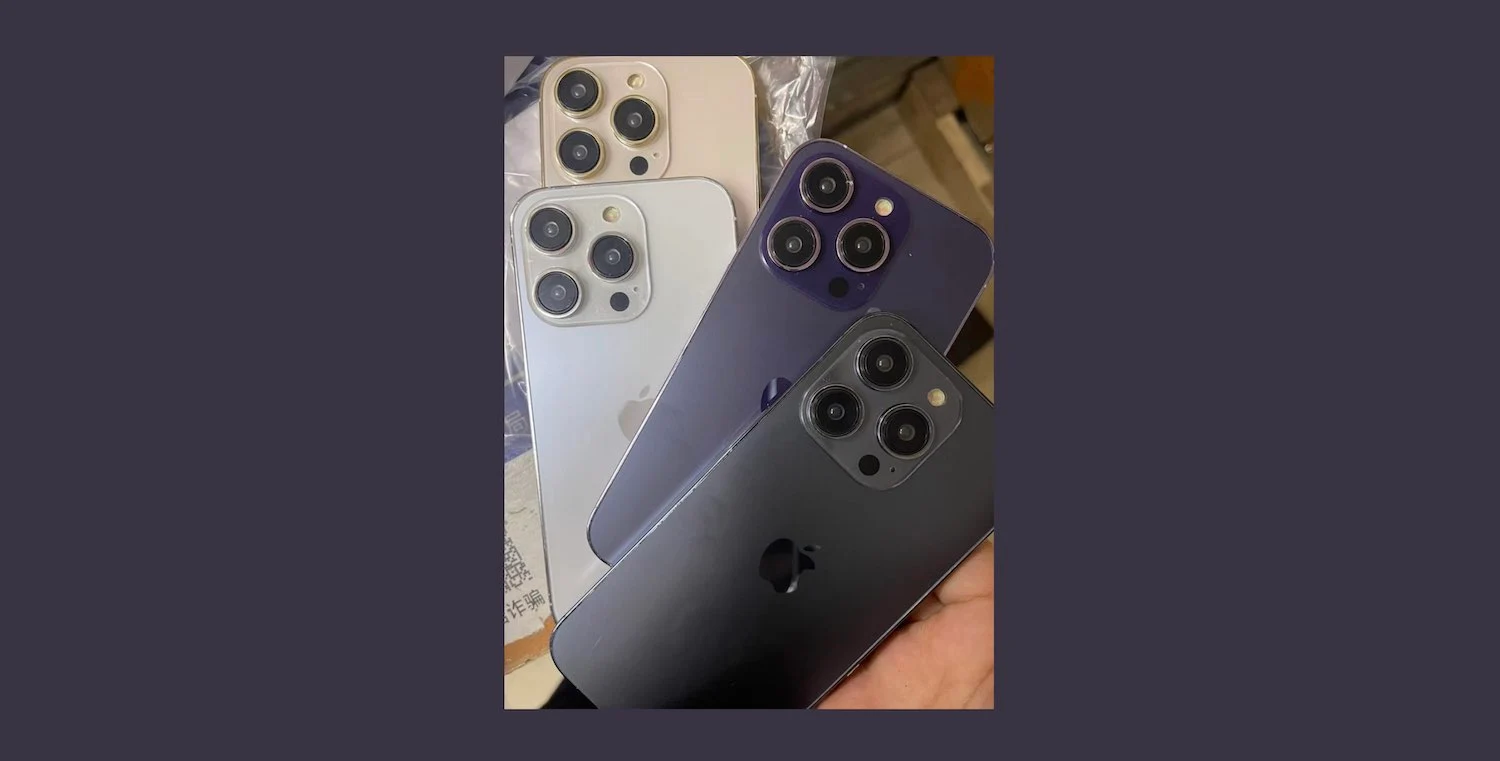
What will your color choices be this year? According to what we know right now, there are some notable changes in store compared to the iPhone 13 lineup.
First off, reports say that the iPhone 14 and iPhone 14 Max will be available in the following colors: green, purple, blue, black, white, and red. For context, the iPhone 13 is available in red, starlight, midnight, blue, and pink. This means Apple is planning to drop the pink color this year. This leak likely doesn’t accurately refer to the names of the colors. For instance, “black” is likely to midnight and “white” is likely referring to starlight.
The same report indicates that the iPhone 14 Pro and iPhone 14 Pro Max will be available in green, purple, graphite, silver, and gold.
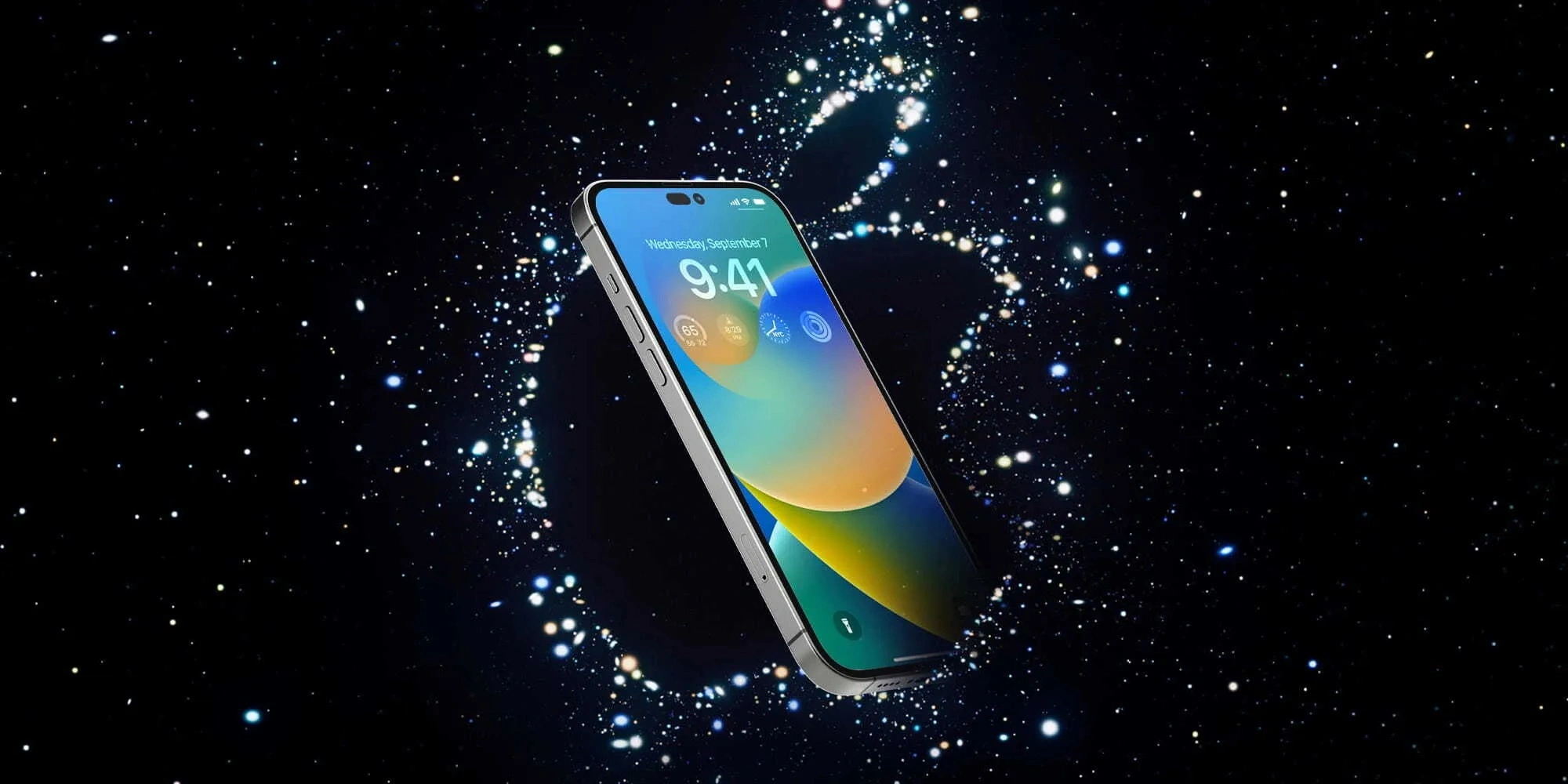
The ability for the iPhone to communicate via satellite connectivity was first rumored for the iPhone 13 last year, but that did not come fruition.
This feature is once again being rumored as a possibility for the iPhone 14 lineup. In fact, Ming-Chi Kuo says the hardware development for this feature has already been completed. The question is whether Apple has inked the necessary financial deals to launch it this year.
As reported by Bloomberg, satellite connectivity for the iPhone will allow users to communicate even when they are out of range of traditional cellular networks. The idea is that this feature will be limited to emergency situations and communication. For instance, you’d be able to communicate with emergency responders via the Messages app as well as to report major emergencies such as plane crashes, sinking ships, and other disasters.
Again, it’s unclear if this feature is ready for the iPhone 14. The hardware, however, is there. 9to5Mac has also found evidence in iOS 16 that Apple is continuing to work on the feature. In fact, the artwork for the event might very well hint at the new satellite features.
There are a handful of other iPhone 14 features and changes that have been rumored. Some of these are sketchier than others, but they are all worth noting as we head into the big day.
Unfortunately, it looks like Apple is planning a price increase for at least the iPhone 14 Pro and iPhone 14 Pro Max. According to reliable Apple analyst Ming-Chi Kuo, Apple will increase the price of the iPhone 14 Pro and iPhone 14 Pro Max by around $100 compared to the iPhone 13 lineup.
This means that the iPhone 14 Pro will start at $1,099 and the iPhone 14 Pro Max will start at $1,199. While some were hoping that the company would increase the base storage to help offset the price increase, it does not appear that will be the case. We expect iPhone 14 devices to still start with 128GB of storage, just like the iPhone 13.
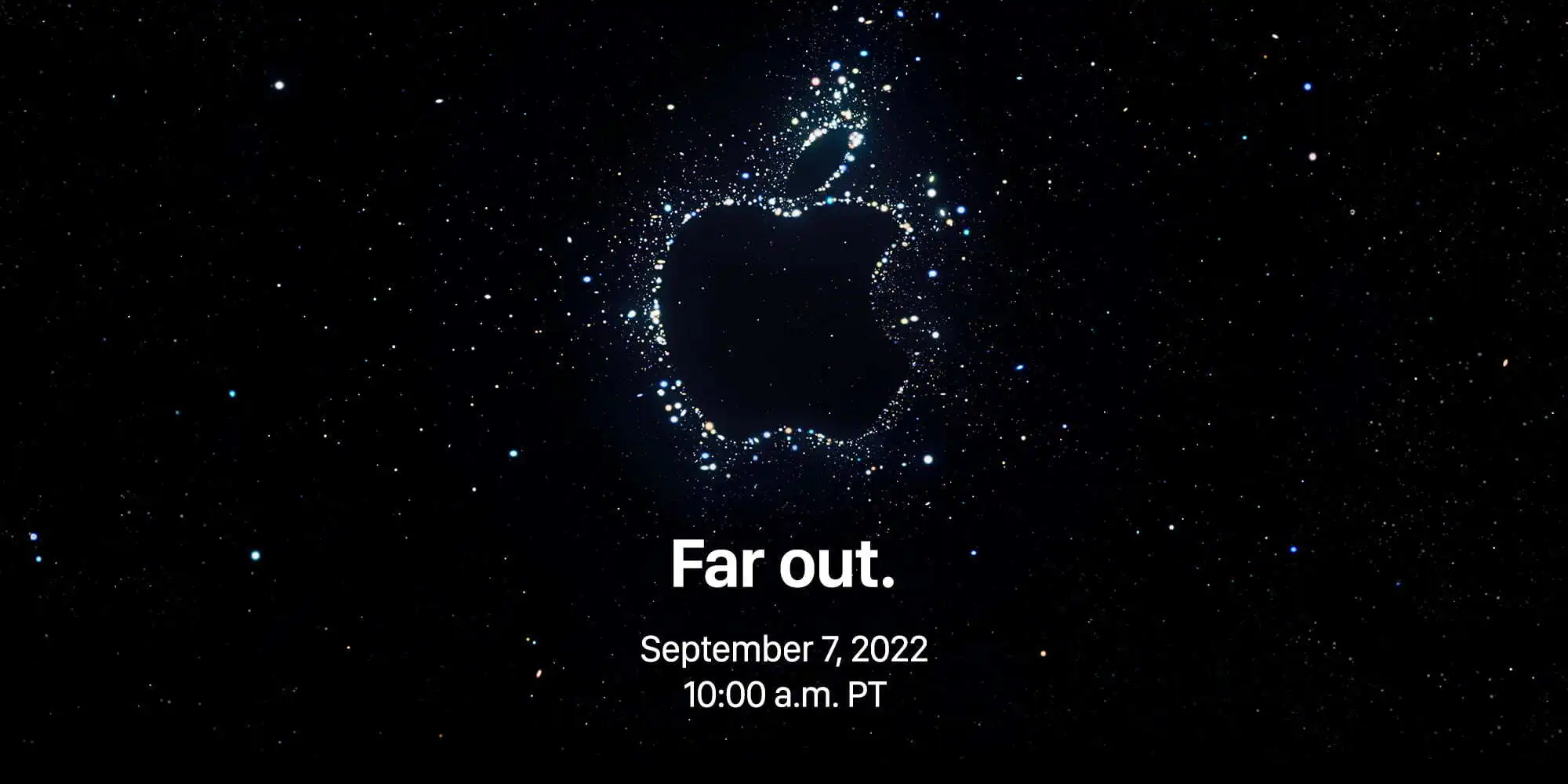
Apple has announced its iPhone 14 event, and it will be held on September 7 at 10:00 a.m. PT/1:00 p.m. ET. As such, we expect the iPhone 14 to go up for sale on September 9, with the first orders arriving on September 16. There are no indications that the iPhone 14 will face any delays, but the iPhone 14 Plus/Max could be more supply constrained than the rest of the lineup at the start.